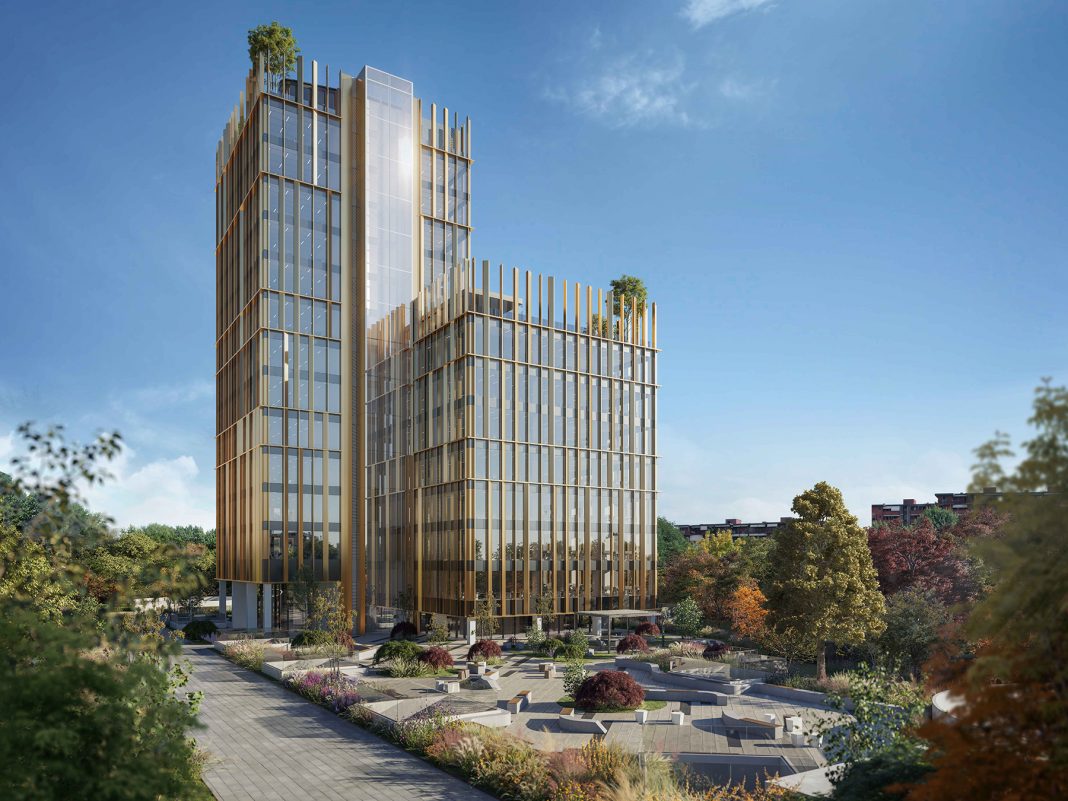AGC has begun production of its low-carbon Planibel Clearlite float glass at a second site, in Seingbouse, France, prior to a group-wide roll-out after launching the product at its site in Moustier, Belgium, six months ago.
The manufacturer says with this additional production capacity now online, it has expanded its Low-Carbon Glass range to include a Low-Carbon variant of Stratobel (safety glass), Stratophone (acoustic glass), iplus (thermal insulation glass), Stopray and Energy (solar control glass), as well as toughenable coatings (T-coatings). The entire range is now available in all thicknesses from 3 to 10 mm.
The manufacturer says its Clearlite product cuts the CO2 footprint by more than 40% to no more than 7 kg of CO2 per m² for 4 mm glass.
It says its holistic approach takes the entire value chain into account: decarbonising production processes, reducing CO2 emissions from the upstream supply chain and cutting other indirect emissions and is effectively leveraging the more sustainable procurement of raw materials, the use of highly efficient melting furnaces that deploy innovative electroboosting technology, the increased use of recycling via intelligent pre-consumer cullet flows and optimised transport between AGC plants and customers. The group also promotes the use of renewable energy by not only purchasing green energy but also generating its own green solar and wind power.
“Investors and building owners are increasingly demanding that sustainable materials be used in their projects,” says the group. “Sustainable buildings have a smaller ecological footprint, minimise the consumption of non-renewable resources and reduce greenhouse gas emissions. During the construction phase various aspects have to be considered, such as the use of decarbonised materials, recyclability, the reusability of building components and the reduction of waste, both during the construction process and beyond the building’s life cycle.”
AGC Glass Europe says the growing demand for sustainable and decarbonised construction is already being reflected in the first projects specifying AGC low-carbon glass, such as Nervesa 21 in Milan, pictured.
This 10,000 m² building is aiming for the highest ESG credentials and circular economy practices in a sustainable refurbishment process that involves recycling more than 90% of the materials removed during the renovation process and sourcing local materials. Some 6,500 m² of Low-Carbon Stratophone 66.2 and Low-Carbon Planibel Clearlite will be supplied.












